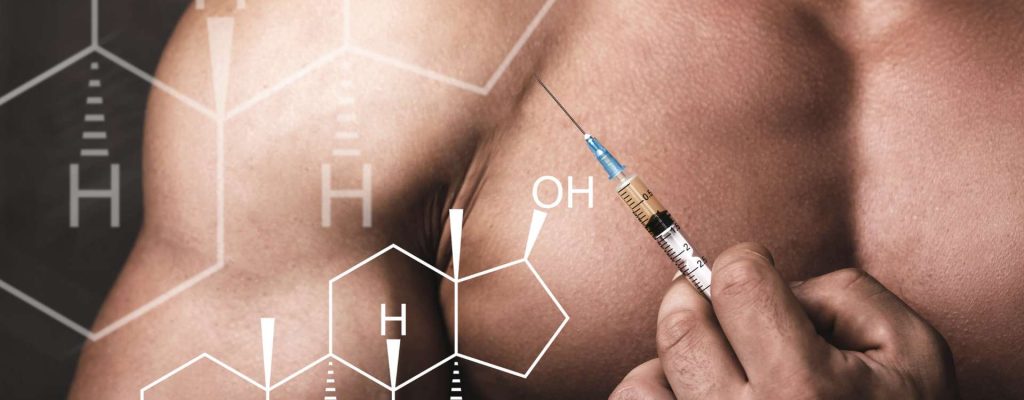
Testosterone Replacement Therapy in Baltimore: How Does It Work?
Do you feel as if your youth slipped from right under you? Are you constantly fatigued and never in the mood for romance? These are all signs of low testosterone and may be treated with our patient-tailored Testosterone Replacement Therapy program in Baltimore, Maryland. Here is a quick breakdown of the Testosterone Therapy program:
- A comprehensive review of symptoms, medical, family and personal history
- Testing – blood laboratory analysis
- Pellet Hormone Therapy
- Ongoing evaluations
- Highest quality supplements
- Fitness programs
- Nutrition planning
Instead of having to call different automated numbers for blood results, or playing phone-tag with doctors, our office is your one point of contact.
Our program starts with a detailed health questionnaire, followed by a 30-minute in-person detailed history and physical, education about the process, and a customized treatment plan. At your first in-person appointment, you will have your blood drawn for an initial diagnosis and to set baseline levels.
If you are interested in TRT please reach out to us at Weigh Wise Weight Loss Center today!
How is Our TRT Clinic in Baltimore Different?
Typically, if a man goes to his primary care physician with thoughts of depression, or a decreased libido, or fatigue, the doctor writes a prescription to treat the issue, never really addressing the real cause of the symptom. We focus on treating the hormonal imbalance that could be causing the following:
- Loss of muscle mass
- Decline in libido
- Depression
- Loss of energy
- Weight gain/Increase in body fat
- Mental fatigue
- Panic and/or anxiety attacks
- Insomnia and/or restless sleep
- Infertility

How To Find Out If You Have Low Testosterone in Baltimore?
Low testosterone, or hypogonadism, can be diagnosed through a simple blood test. The test measures the level of testosterone in your blood, and can be performed at any time of the day, although the levels of testosterone in the blood vary naturally throughout the day, with the highest levels in the morning.
Your doctor may also perform a physical examination and ask about your medical history and symptoms to determine if you have low testosterone. Some common symptoms of low testosterone include fatigue, decreased sex drive, erectile dysfunction, decreased muscle mass, and increased body fat.
It’s important to keep in mind that there can be many other causes for these symptoms, so it’s important to have a complete evaluation by a doctor before starting any treatment.
If the test shows that you have low testosterone, your doctor may recommend further tests to determine the cause and may also suggest treatments, such as testosterone replacement therapy, to help improve your symptoms.

Is Testosterone Therapy The Key To Male Vitality?
Just because you’re getting older, doesn’t mean you have to feel old. As men get older, it is very common to experience weight gain, loss of muscle mass, sexual problems, feelings of depression, a loss of mental sharpness and even a loss of height between the ages of 30-55.
Additionally, studies have shown that since 1980, testosterone levels in men have dropped by a whopping 1% a year. Whether this is due to diet, sedentary lifestyle, micro-plastics or all of the above is unclear. What is clear is that you have around half of the amount of testosterone in your body as your father did. This can make it extremely difficult to maintain a healthy weight or worse, sex life. For this reason, more men have begun to look towards HRT as a way of combating the effect of low testosterone.
If you have sought treatment for any of these symptoms, more than likely your doctor may have prescribed a pill to “fix” the issue. If you haven’t seen a doctor yet, don’t worry you’re not unusual. Most men don’t seek out medical treatment for these symptoms, chalking them up to a normal part of aging. However, your options are not limited to feeling like this every day or taking a daily pill for the rest of your life.
Weight Wise’s Testosterone Therapy Program treats the root causes of these issues.
Weight Wise is the leader in Testosterone Therapy in Baltimore, Maryland and provides an unrivaled, medically supervised program for patients suffering from Low Testosterone, also known as “Low T.”
Testosterone is a hormone produced primarily in the testicles. Testosterone helps maintain men’s:
- Bone density
- Fat distribution
- Muscle strength and mass
- Red blood cell production
- Sex drive
- Sperm production
Testosterone is a steroid hormone produced in all humans, and is the main sex hormone in males. Testosterone plays a key role in maintaining physical and mental health in both females and males. Testosterone has been shown to enhance the cardiac benefits of exercise, builds lean muscle mass, sharpen your memory, increases the libido, decreases excess body fat, improve your energy level, along with an overall sense of well-being. It helps maintain bone density, fat distribution, red blood cell production, and sperm production.
Just like your cholesterol or blood pressure, there is a numerical range of testosterone levels (also known as T levels) that are considered normal. The brain and the testicles work together to keep testosterone in this range. When levels of testosterone are below normal, the brain signals the testicles to make more. When testosterone levels reach a normal level, the brain signals the testicles to make less.
What Happens To Your Testosterone Levels With Age?
Testosterone peaks during adolescence and early adulthood. As you get older, your testosterone level gradually declines — typically about 1 percent a year after age 30.
Do You Suffer From Low Testosterone?
- Low sex drive (libido)
- Erectile dysfunction
- Fatigue and poor energy level
- Difficulty concentrating
- Depression
- Irritability
- Low sense of well-being
If any of these describes you, then you are a possible candidate for Testosterone Therapy.
Your Health and Low Testosterone
Researchers are unlocking the mysteries of how low testosterone is related to men’s overall health. Along the way, they’re uncovering connections between low testosterone and other health conditions.
Diabetes, metabolic syndrome, obesity, and high blood pressure have all been linked to testosterone deficiency. Low testosterone isn’t known to cause these health problems, and replacing testosterone isn’t the cure. Still, the associations between low testosterone and other medical conditions are interesting and worth a look.
Diabetes and Low Testosterone
A link between diabetes and low testosterone is well established. Men with diabetes are more likely to have low testosterone. And men with low testosterone are more likely to later develop diabetes. Testosterone helps the body’s tissues take up more blood sugar in response to insulin. Men with low testosterone more often have insulin resistance: they need to produce more insulin to keep blood sugar normal.
As many as 50% of men with diabetes have low testosterone, when randomly tested. Scientists aren’t sure whether diabetes causes low testosterone, or the other way around. More research is needed, but short-term studies show testosterone replacement Palm Coast may improve blood sugar levels and obesity in men with low testosterone.
Obesity and Low Testosterone
Obesity and low testosterone are tightly linked. Obese men are more likely to have low testosterone. Men with very low testosterone are also more likely to become obese.
Fat cells metabolize testosterone to estrogen, lowering testosterone levels. Also, obesity reduces levels of sex hormone binding globulin (SHBG), a protein that carries testosterone in the blood. Less SHBG means less testosterone.
Losing weight through exercise can increase testosterone levels. Testosterone supplements in men with low testosterone can also reduce obesity slightly.
Metabolic Syndrome and Low Testosterone
Metabolic syndrome is the name for a condition that includes the presence of abnormal cholesterol levels, high blood pressure, waistline obesity, and high blood sugar. Metabolic syndrome increases the risk for heart attacks and strokes.
Studies show that men with low testosterone are more likely to develop metabolic syndrome. In short-term studies, testosterone replacement improved blood sugar levels and obesity in men with low testosterone. The long-range benefits and risks are still unknown.
Testosterone and Heart Disease
Testosterone deficiency is connected to insulin resistance, obesity, and diabetes. Each of these problems increases cardiovascular risk. Men with diabetes and low testosterone also have higher rates of atherosclerosis, or hardening of the arteries.
A certain amount of testosterone may be necessary for healthy arteries because it’s converted into estrogen, which protects arteries from damage. As yet, no studies show that testosterone replacement protects the heart or prevents heart attacks.
Testosterone and Other Conditions
Low testosterone often exists with other medical conditions:
Depression: In a study of almost 4,000 men older than 70, those with the lowest testosterone levels were more than twice as likely to be depressed. This link remained even after allowing for age, general health, obesity, and other variables.
Erectile dysfunction (ED): Problems with erections are one of the most common symptoms of low testosterone. Most ED is caused by atherosclerosis. Men with risk factors for atherosclerosis — diabetes, metabolic syndrome, or obesity — often have low testosterone, too.
High blood pressure: The effects of testosterone on blood pressure are many and complex. Men with high blood pressure may be almost twice as likely to have low testosterone as men with normal blood pressure. On the other hand, too much testosterone can increase blood pressure. Testosterone acts in multiple ways on blood vessels, so this may account for the varying effects.
Testosterone works in the male body in multiple ways. It is a natural hormone that the body makes less of as we age. Testosterone works to increase muscle mass and is most effective when combined with a training exercise program. More muscle mass and strength equals a higher metabolism and better quality of life. Most men report enhanced recovery from their workouts and find that they can workout more intensely once they have begun a course of testosterone replacement therapy.
An increase of metabolism due to better better body mass index has the added effect of reducing the risks of diabetes, hypertension, cancer, and heart disease. Less fat + more muscle = greater health.
The nervous system is also affected beneficially by testosterone therapy. Large concentrations of testosterone receptors exists in the male brain. Testosterone is essential for healthy brain function and can improve moodiness, irritability, and depression. Men may experience indecisiveness and loss of confidence with aging, both of which can be measurably improved with testosterone therapy.
Testosterone Replacement Therapy also has proven cardiovascular benefits. The greatest concentration of testosterone receptors is in the heart. The heart is composed of muscle and experiences wear and tear as we age. Testosterone acts as a vasodilator and improves blood flow. It has also been found to helpful to repair damage to the inner lining of blood vessels. Testosterone can even help lower blood pressure.
A higher level of well-being and a life brimming with more energy is commonly seen after testosterone replacement therapy.
As the average test levels in males across the world decline, more and more men are turning to TRT as a way to regain control over their health.
If you believe to be suffering from low testosterone or experience symptoms similar to the ones outlined above, testosterone replacement therapy may be the right option for you. Please reach out to us at Weight Wise and find out if you are eligible for testosterone replacement therapy.

